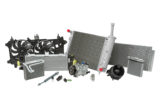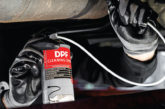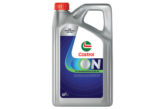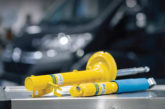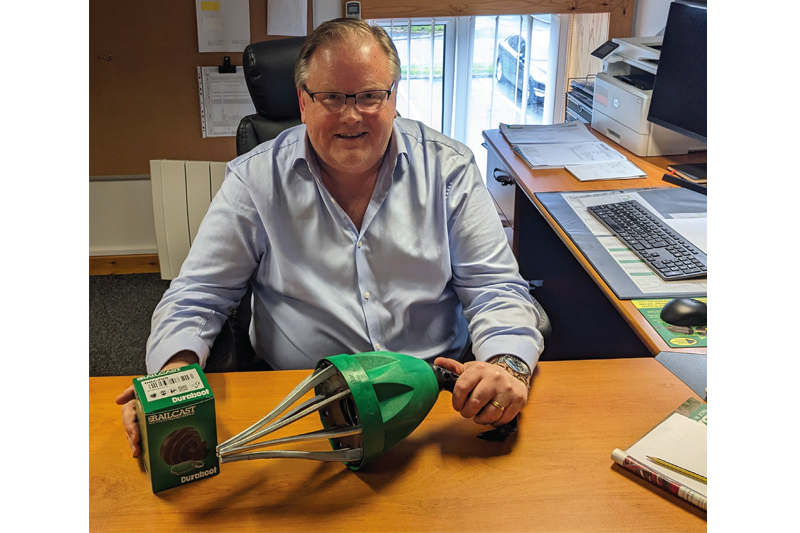
PMM ’s Kieran Nee speaks to Bailcast’s sales manager Martin Calley to find out more about the CV boot firm’s manufacturing pedigree.
One debate which will always get workshop owners’ neurons firing is the relative advantages and disadvantages of OE vs. aftermarket parts. On the one hand, you have OE parts, which are, of course, the original parts – when a part fails on a customer’s car, often the best thing you can do is to replace that part like for like; after all, the vehicle was designed with that part in mind. On the other hand, however, aftermarket parts present a cheaper alternative, which allows you to pass savings back to the customer – the downside being that the quality of manufacture, materials and design hasn’t been assessed and approved by the original vehicle manufacturer. So, would it be fair to say that OE parts are always more expensive and always better quality? Well, perhaps not. Speaking to Bailcast’s sales director Martin Calley, I got the distinct impression that when it comes to CV boots, the aftermarket solution has roundly trumped the OE part, for a number of reasons.
Boot range
You almost certainly have handled a Bailcast product before – the number of units shifted over the years is astronomical. The firm’s main products are CV boots, but it also manufactures steering rack boots, universal ball joint dust covers and tools for fitting the CV boots; Duragun and the newly launched DuragunPRO. There are two lines of the CV boots – 8 Duraboots which are aimed squarely at the trade and cover 93 per cent of the car parc; and three universal boots (including a split boot aimed at driveway mechanics). All of the boots are produced right here in the UK. Martin was keen to stress the importance of manufacturing products in the UK: “When we sell our products in Europe, our customers are happy to pay more because they recognise that products made in the UK are of a higher quality than those imported from the far east. I would like to add that when we put Made in Britain on the side of the box, it’s because it is actually manufactured here and not simply imported and reboxed here. The boots have been made here since our inception in 1980 and we monitor their quality very closely”
Rewinding back to 1980. The company was started by Philip Hayward, who remained the managing director right up until his retirement in 2020, selling the business to his existing management team. Despite retiring Philip can still be found offering support and advice to the team around the office. In Martin’s words, Phil lives and breathes Bailcast and no matter what happens, “Bailcast will always be Phil”. The concept of the stretch boot all came about when Phil was tinkering away on a classic Rolls Royce passion project that required him to change the CV boot. Phil began to wonder whether he could transfer the steering rack gaiter concept of the concertina pliable rubber boot to the CV joint.
The enterprising rubber engineer drew up plans for a neoprene CV boot, whose material properties would provide several advantages over its OE equivalent and sent them out to parts suppliers and distributors in the industry, hoping for some advice and words of encouragement in return. What came instead were orders, and the CV24 Universal boot was born and with it the Bailcast stretch boot. The boot design and materials have undergone changes since then, but the concept of a synthetic rubber boot in a concertina style has remained the same. The material blend used in its manufacture allows the boot to stretch up to four times its size, as well as withstanding very low and very high temperatures. OE boots come mainly in two forms: natural rubber and thermal plastic. Natural rubber, Martin tells me with a smile, degrades over time when it comes into contact with oil, which is exactly what the boot is designed to do. What’s more, it doesn’t react well to ozone. Thermal plastics, on the other hand, are rigid and brittle, not suited to bending – the other requirement of a CV boot. In short, neither of the OE solutions are very durable and so aren’t normally covered under the VM warranty.
Bailcast’s boots, on the other hand, come with a two-year warranty, as their oil and grease resistance, flexibility and aforementioned thermal resistance ensure that once fitted, they will last a long time. So, my question was, why haven’t the VMs been a-knocking?
“They have!” Martin replies, “but we can’t produce them as cheaply as they want. When it comes to the CV boot, all they care about is cost. When it fails, which it will, it’s up to the driver to pay for a replacement. They can either get the OE boot, which will be expensive and will fail again, or they can get the aftermarket solution for a lot less and not have to worry about it again for a long time.” I know if I was running a workshop which one I’d be fitting.



